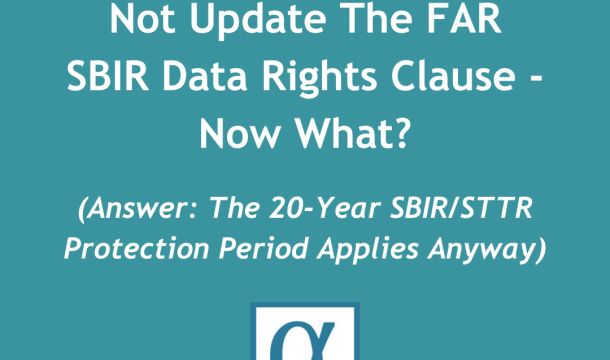The GovCon Bulletin™
SBA Rule Changes To WOSB Regulations Provide Flexibility On Outside Employment
Last week, the U.S. Small Business Administration (SBA) went a long way in acknowledging the balancing act that entrepreneurs and owners of small business startups, including women-owned small businesses (WOSBs), often have to perform as they steer their fledgling companies through the early phases of business development. By letting go of the requirement that WOSB officers must manage their businesses on a full time basis during normal business hours, the SBA’s recent rule changes may open the door to federal government contracting for a number of women entrepreneurs that previously may have been closed shut.
On April 27, 2023, the SBA published its wide-ranging Final Rule that updates roughly seventy-six regulations under the SBA’s small business programs. The changes were first proposed in September of last year and we addressed several of them in a 5-part series last September and October. As we noted in our article covering the anticipated changes to the WOSB program, the proposed rule made several updates including to the WOSB regulations covering ownership transfers on account of death or incapacity, WOSB re-certifications, how the SBA processes WOSB program applications, and which NAICS code a WOSB must qualify as small for. The Final Rule issued last week adopted all of the proposed changes with relatively few adjustments. But it is the SBA’s changes to the rules limiting outside employment that may have the most immediate impact in creating opportunities for women owners, particularly economically disadvantaged women owners.
Under the SBA’s regulations, a WOSB must be controlled by one or more women. As elaborated further in the regulations that were in place before the recent changes, the control requirement meant that a woman who held the highest officer position of the business was required to manage it on a full-time basis during normal working hours, as determined by the normal working hours of companies in the same or similar line of business.
This mandate ignored a reality for women entrepreneurs and small business owners who often don’t have the luxury or financial wherewithal to quit their day jobs or other business ventures while running businesses with restricted cash flow in their early months or years. Moreover, as the SBA itself acknowledged in the preamble to the Final Regulation, in the case of a woman who is the sole person operating a business she started, there is no question that she controls the business regardless of the number of hours she devotes to the business or whether it aligns with the normal business hours of similar businesses.
Consequently, recognizing that maintaining control over a business does not necessarily require physical presence during normal hours of operation, the revised regulations no longer impose a flat ban on outside employment during normal business hours. The updated regulations require that the woman who holds the highest position refrain from outside employment only if it prevents her from devoting sufficient time and attention to control the management and daily operations of the business. In cases where a woman devotes fewer hours to the business than its normal hours of operation, there is a rebuttable presumption that she does not control the business, but that presumption can be overcome with evidence that she does, in fact, have ultimate management and supervisory control over long term decisions and day-to-day management and administration of the business.
Owners of women-owned businesses who, in the past, may have been deterred from seeking WOSB certification or whose applications were rejected on account of their outside employment should examine the revised rules to determine if their businesses may now qualify for WOSB certification.



